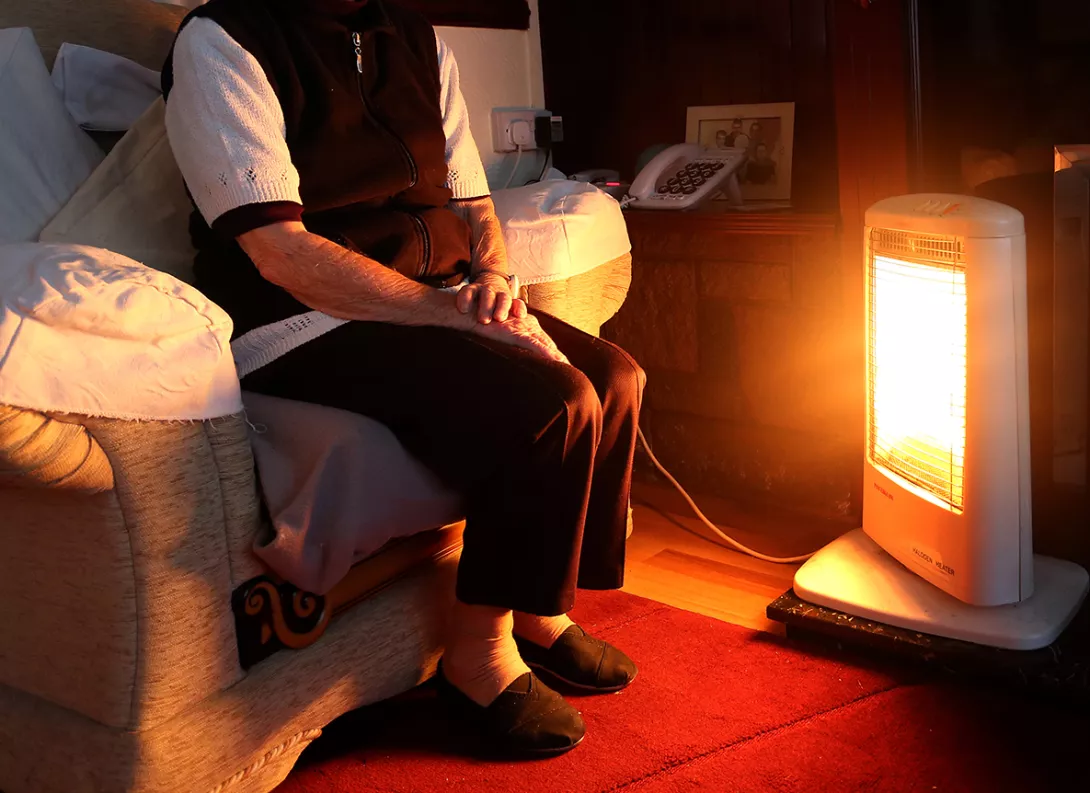Error message
An error occurred while searching, try again later.
THE stark fact is that Britain’s fuel poverty crisis puts lives at risk.
The present cold snap brings home the extent of the crisis for the elderly, made more intense by the Labour government’s removal of the automatic winter fuel payment.
More than three-quarters of the public want a social tariff to underpin an energy bill discount for those who need it most.
Pensioners are a clear example of a group that includes many of the most vulnerable.
The arguments in favour of a social tariff are simple. It should support all who depend on heating and electricity for their health and wellbeing. Keeping the costs of energy at a manageable level and protecting the vulnerable from the volatility of the capitalist market in energy should be the mark of a modern and civilised country.
The functioning of the global energy market conforms to the unswerving logic of 21st century capitalism which prices energy beyond the means of the most needy.
That is why near on eight out of 10 people think an energy social tariff would benefit those suffering from respiratory diseases, cardiovascular problems, dependent on physical support — wheelchair and dialysis machine users etc who need power to live in reasonable security and comfort.
To those apologists of Rachel Reeves’s “austerity by stealth” regime who argue that not all pensioners need the discount tariff or a winter fuel payment, we can say that for those well endowed enough to do without the subsidy should be taxed to recover the benefit they do not need.
The tax system is a much more efficient way of regulating benefits than any means-test system. But this offends against the unspoken logic of every government in recent times which police benefit fraud with an energy missing in the tax system. Benefit fraud is around £1 billion per year, while unclaimed benefits at circa £15bn are around the same level as government income lost to tax fraud.
To argue for a tax regime that is based on the redistributive principle — that those whose incomes arise from rents and dividends and that derive from the unpaid wages of others should be taxed to maintain the sinews of a civilised society — offends against the very logic of the capitalist system.
Tax Justice UK argues that the wealth of the super-rich is ballooning.
Britain is billionaires’ playground — their wealth has increased twelvefold in 30 years. Globally the 10 richest men doubled their fortunes in the space of two years.
But for working people, foodbank use is up nearly tenfold since 2012. The gap between the wealthy and poor is widening, with women and ethnic minority groups especially affected.
Even though her early career stint as a Treasury functionary did not involve her in the strategic planning of the tax regime, Reeves knows full well that unless a government exercises control over capital movements, and directs it into productive investment, then any attempts to raise the level of economic activity are dependent on the whims of the very rich linked to the unsparing actions of the bond markets. And the verdict of the bond markets on this government is driving it inexorably towards a new austerity regime.
Unless the people act.
There lies the reality of present-day politics. Either a people’s government controls capital or capital controls the people.
The great Irish revolutionary James Connolly summarised the socialist position: “Our demands most moderate are — We only want the earth!”













